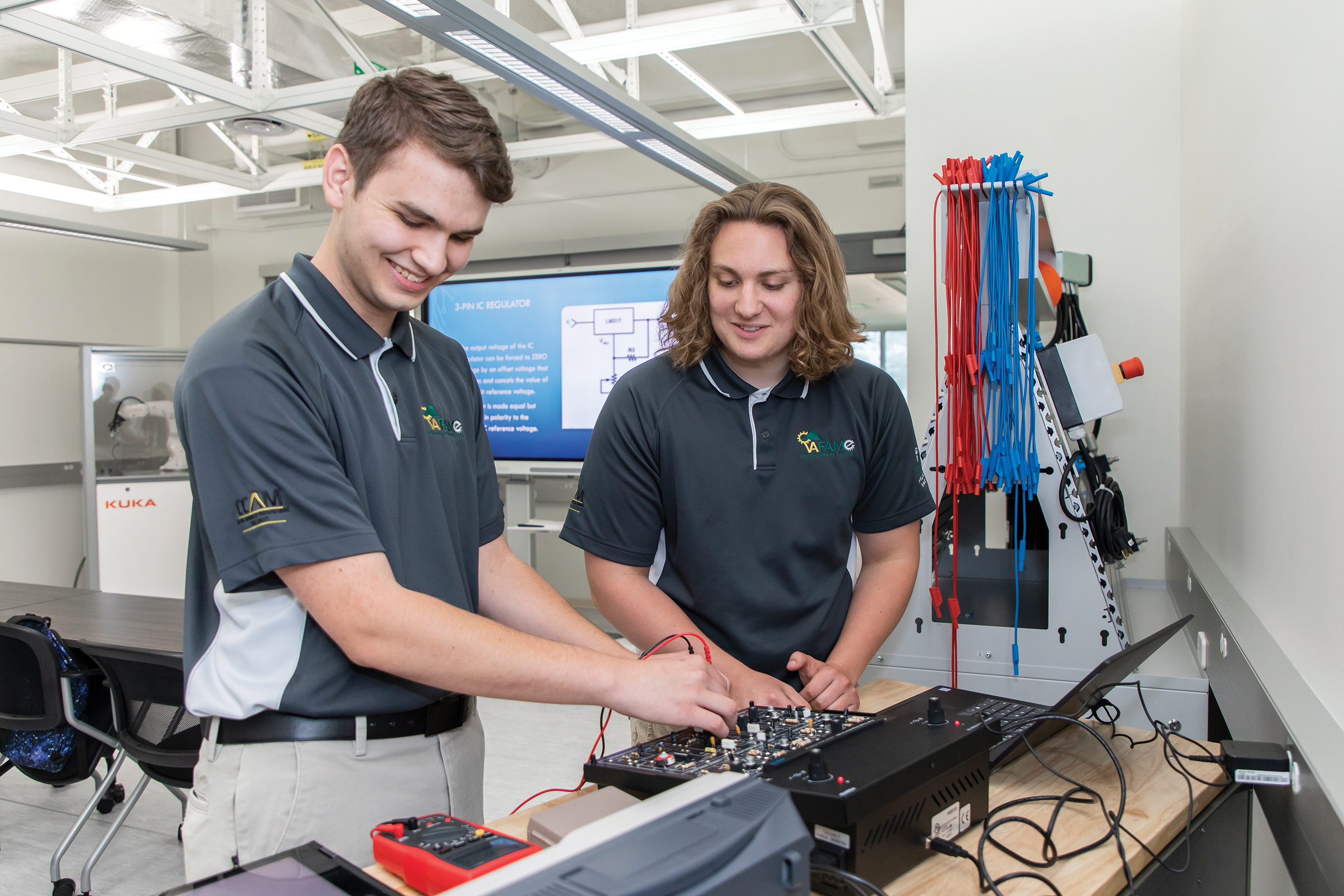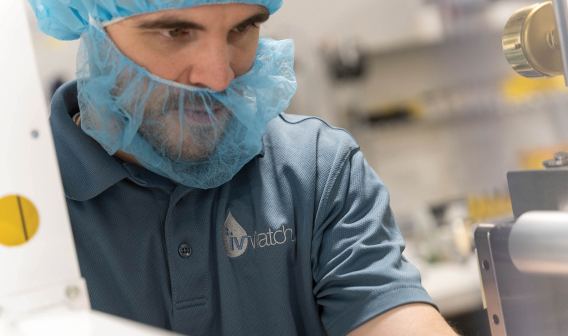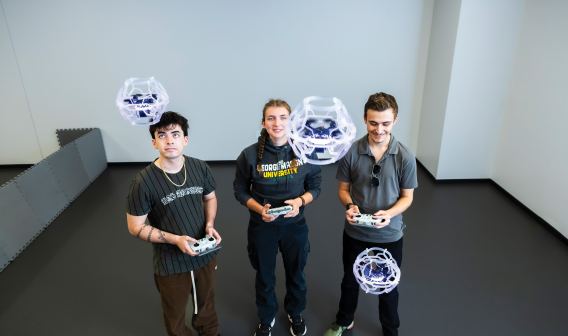FAME Program Helps Fill Manufacturing Skills Gap
When Thomas Midgette visits a high school, he has one goal in mind: to persuade today’s teenagers that they should seek a career in manufacturing.
Midgette — who runs the Federation for Advanced Manufacturing Education (FAME) work study program provided by Richard Bland College of William & Mary (RBC) in Prince George County outside Petersburg and the Commonwealth Center for Advanced Manufacturing (CCAM) — shows them pictures of clean, well-lit facilities. He talks about safety protocols, extols the high-tech machinery, and gives clear examples of strong pay opportunities.
“There will be some days where you get dirty,” he tells them, “but the point is that you’re not drenched in dirt and sweat all day.”
The program — a national effort with chapters in 13 states — places college students in manufacturing training programs through a collaboration between RBC, a two-year college; CCAM, an applied advanced manufacturing research and development consortium; and local businesses that range from pharmaceutical manufacturers AMPAC Fine Chemicals to rail parts manufacturer Amsted Rail to snack food giant Sabra Dipping Co. The hope is to offer local residents career options while providing employers with the skilled talent they need.
“It’s an Advanced Manufacturing Technician program,” said Betsey Odell, CCAM’s director of development. “You’re learning pneumatics, you’re learning hydraulics, you’re learning about electrical circuitry, robot programing, electrical drive controls, vision inspection systems, integrated testing, and much more.”
Students are paid an average of $16 an hour for about 25 hours per week of work, with some employers also offering perks like health insurance, 401(k) plans, and stock options. Students exit the program armed with a transferrable associate’s degree and the training to start working, making upwards of $50,000 per year.
One participating business is German company Electronic Precision Technology Connectors, Inc. (ept usa), which employs about 65 technicians, tool and die makers, engineers, and others at its automotive parts manufacturing facility in Chesterfield County. It’s the fruition of a dream that Joerg Paule, ept usa’s director of operations, had begun to fear would never be realized.
“Any manufacturing company has the same problem we have,” he said. “Our maintenance workforce is developing gray hairs, meaning they are getting older. And there are not enough young ones filling the place of the soon-to-retire employees.”
Within the next two years, he said, about a dozen of his highly skilled employees will retire. The company had tried starting its own apprenticeship program, with little success in filling the upcoming openings. Thanks to FAME, there is hope in sight.
When FAME students are not on the job site, they are either at CCAM taking courses on industry education or at RBC completing general education requirements. This year, the program’s first class is six students who are enrolled and apprenticing at four job sites. The program is funded by grants from GO Virginia, Prince George County, and the local Cameron Foundation. When it reaches 20 students per class — ideally in two to three years — the program will become self-sustaining, Midgette said.
Paule hopes today’s trainees become tomorrow’s employees, with more to follow. He’s got his sales pitch ready: “If you like precision, if you like structural, if you like problem solving, this [career] is for you. And I am also convinced: If you have those interests, and an education in your back pocket, you never have to worry about finding a job.”





